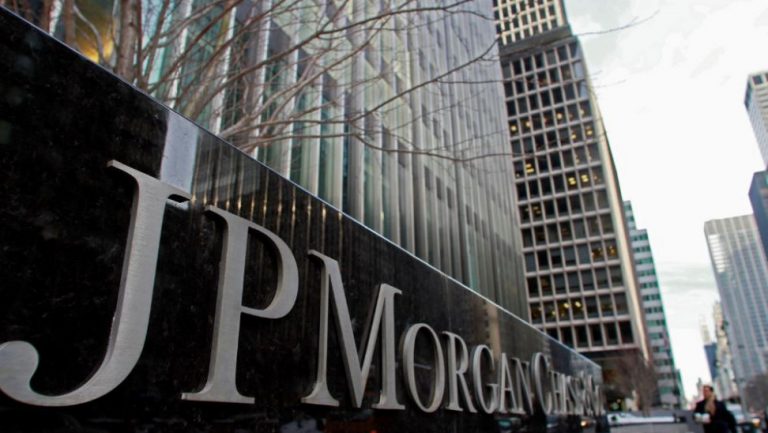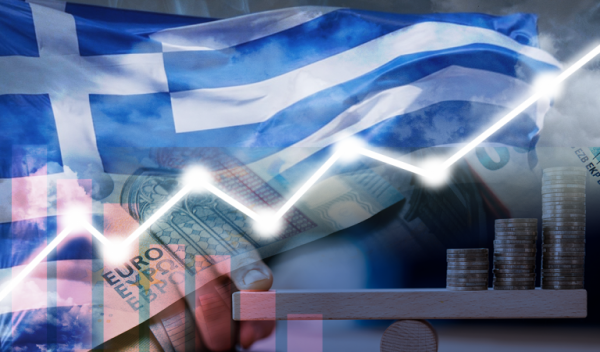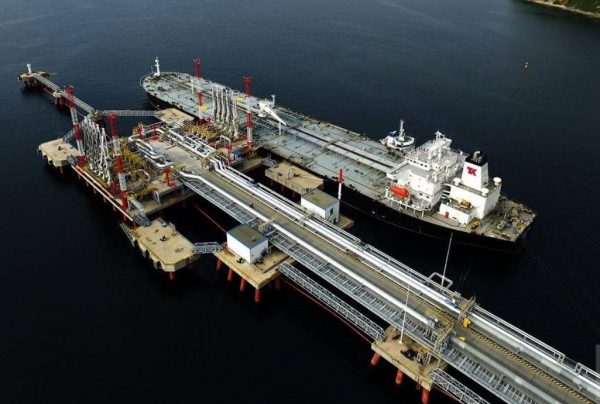
JP Morgan has placed Alpha Bank’s share on the list of the top 10 shares of Central and Eastern Europe, Middle East and Africa (CEEMEA) region, the first Greek share to enter the list since 2014, as highlighted in its new report bank.
It is also reported that Greece is JP Morgan‘s preferred market from the emerging markets of Europe for 2023, where it decided for the first time after five years to change its attitude to positive , mainly due to the growth “weapons” the Greek economy has.
Scenarios
As JP Morgan notes, with 2023 forecast to be a difficult year for the global economy and especially for the CEEMEA region, at least in the first half, Greece is showing a more predictable macroeconomic background, with increasing profitability in the banking sector.
The bank estimates that under its positive scenario the MSCI index of Greece will rise by 15% next year, while according to its basic scenario the rise will be around 8%.
The positive scenario for the index is supported by Greece being less impacted by high gas prices than in other EU countries, growth prospects for 2023 looking strong as EU funds flow in, clearing of banks’ balance sheets is largely complete and investors’ positions are still limited.
The dangers
Among risks is the small size of the Greek market, which makes it vulnerable, as well as the long-term growth dynamics.
For Alpha Bank
As for Alpha Bank, JP Morgan points out that its balance sheet cleanup is undervalued by emerging market investors and cheaper than most EU banks, while it has strong medium-term upside given the private sector with low leverage.
For the Greek market
As for the Greek stock market, the bank admits that it has not been involved much and adds that it was and still is a small part of the whole, weighing 2.1% in the MSCI EMEA index and 0.30% in the MSCI Emerging Markets. It reviewed its last extensive report on Greece which was in 2017.
“We considered it a high-risk market where we didn’t have a strong view. Now, we have some stronger views: the process of repairing the banks’ balance sheets has been successfully completed, finally, and the macroeconomic background is both positive and more resilient to the European recession than most countries in the Central European region,” it says.
The recovery is clear
In macroeconomic terms, in the 2010s per capita income in Greece had fallen by 28% (from its peak in 2007 in real terms to its 2020 low in the COVID-19 period) and is still 18% lower.
But Greece’s recovery path, as JP Morgan points out, looks clearer and more certain with the Recovery Fund in the background. In addition, Greece-EU relations have improved significantly under the New Democracy government after the 2019 elections. Greece has managed to secure a good share of the EU (NGEU) funds that will help the next leg of development.
“We agree with the IMF’s assessment that the reforms supported and financed by the NGEU are vital to pushing structural growth higher,” JP Morgan notes. The government’s recovery and resilience plan has already disbursed €1.8 billion (about 1% of GDP) with another €8 billion in projects in earlier stages. In total, the government plans to spend 32 billion euros in 2021-2026″, it is reported.
Finally, JP Morgan sees opportunities for Greek banks in the low corporate debt of the non-financial sector and in household debt.
Latest News

Cost of Living: Why Greece’s 3% Inflation Is Raising Alarm
Greece appears to be in a more difficult position when it comes to price hikes, just as we enter the era of Trump’s tariffs.

Fitch Ratings Upgrades the Four Greek Systemic Banks
NBG’s upgrade reflects the bank’s ongoing improvements in its credit profile, Fitch notes in its report, including strong profitability, a reduction in non-performing exposures (NPEs), and lower credit losses

Trump to Announce Sweeping New Tariffs Wednesday, Global Retaliation Expected
With Trump's announcement just hours away, markets, businesses, and foreign governments are bracing for the fallout of one of the most aggressive shifts in U.S. trade policy in decades.

Inflation in Greece at 3.1% in March, Eurostat Reports
Average inflation in the eurozone settled at 2.2%, compared to 2.3% in February

Greece’s Unemployment Rate Drops to 8.6% in February
Despite the overall decline, unemployment remains higher among women and young people.

Jerry Kalogiratos Highlights Key Role of Energy Transition and Data Demand in LNG Outlook
Energy transition and the prospects of LNG were discussed at Capital Link’s 19th Annual International Maritime Forum, during a panel discussion with Jerry Kalogiratos (Capital Clean Energy Carriers Corp.)

Santorini Safe and Ready for a Dynamic Tourism Season
Authenticity, cultural heritage, and genuine experiences at the center of Santorini's new promotional campaign

Electricity Bills: Greece Announces Reduced Tariffs Schedule
Greece will now offer lower electricity rates between 11:00-15:00 and 02:00-04:00

Chevron Confirms Eyeing Natural Gas Exploration South of Crete
Chevron recently declared its intent to explore a third area, south of the Peloponnese.

Evangelos Marinakis: A time of change from which shipping can benefit
Speaking at the 19th Annual Capital Link International Shipping Forum Evangelos Marinakis stressed the challenges that shipping faces today












![Τουρκία: Μεγάλες βλέψεις για παραγωγή ηλεκτρικών οχημάτων [γράφημα]](https://www.ot.gr/wp-content/uploads/2025/03/ot_turkish_autos-90x90.png)











![ΕΛΣΤΑΤ: Αυξήθηκε η οικοδομική δραστηριότητα κατά 15,6% το Δεκέμβριο [πίνακες]](https://www.ot.gr/wp-content/uploads/2025/03/DSC9655-2-1024x569-1-90x90.jpg)

















 Αριθμός Πιστοποίησης
Αριθμός Πιστοποίησης